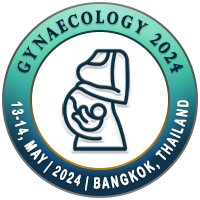
Princess Honeylaine F. Sangalang
James L. Gordon Memorial Hospital, PhilippinesTitle: COVID-19 vaccine acceptability among pregnant women in a tertiary health care facility, Olongapo city, Zambales, Philippines
Abstract
Background / Introduction: Covid 19 Vaccines are effective public health interventions against viral outbreaks and pandemics through primary prevention. No study has been reported yet on the acceptability of the COVID-19 vaccine among pregnant women in Olongapo City, Zambales, Philippines.
Aims and Objectives: To determine the acceptance of a COVID-19 vaccine among pregnant women.
Materials and Methods: A cross-sectional, descriptive study using a questionnaire conducted at a tertiary Hospital in Olongapo City, Zambales, Philippines. Logistic regression analysis is performed to determine the factors for vaccine acceptability among pregnant women.
Results: More than half of pregnant women (60.25%) accepted COVID-19 vaccination. Those above 30 years of age were almost twice likely (Odds Ratio=1.9, CI: 1.2 – 3.2) to accept the vaccine, compared to those who were 30 years old or younger. Women who were married or living with a partner were likewise 2.1 times more likely (OR=2.1, CI: 1.1 – 3.9) to accept the vaccine than single parent women. Furthermore, pregnant women who at least reached college-level education were 2.2 times more likely (OR = 2.2, CI: 1.3 – 3.6) to accept the vaccine.
On the other hand, employed or self-employed pregnant women were 1.3 times more likely to have themselves vaccinated against COVID-19. Those in the first or third trimester of pregnancy were much more likely to accept the COVID-19 vaccine as compared to those on their second trimester of pregnancy (Odds Ratio = 12.7 and 17.7, respectively). Similarly, pregnant women with a comorbidity were found to be 3 times more likely to have themselves vaccinated. Although, their computed OR did not show statistical significance, the trend noted is applicable to the sample women in this study but not to the larger population of pregnant women.
Conclusion: Majority of the participants accept the COVID 19 vaccine regardless of the disparities in numbers vis a vis demographics and knowledge. Public health workers working hand-in-hand with Local Government Unit (LGU) efforts must be commended in their ongoing efforts towards COVID-19 vaccine acceptance. Mass campaign through education emphasizing benefits of the vaccine must continue to attain the biggest impact.
Biography
WILL BE UPDATED SOON

